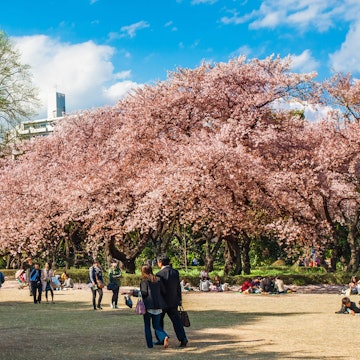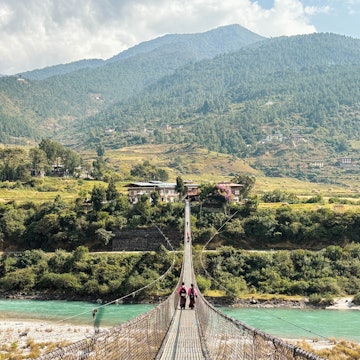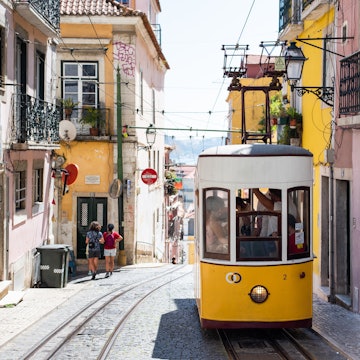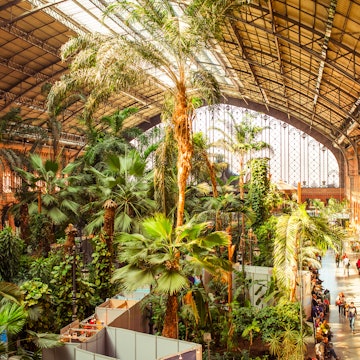

The naughty weekend away in Hobart has become de rigeur for mainland Australians and with 48 hours to play with you’ll get a true taste of this photogenic southern city. Hobart – Australia’s southern-most state capital and home to around 218,000 Tasmanians – has really come into its own in the last decade. This was once a sleepy outpost with a backwards economy, bad coffee and nowhere to eat after 8pm. But a few things fell into place: cheaper airfares, international exposure and the arrival of the astonishing MONA art museum conspiring to put Hobart on the map, and put some spring into the city’s collective step. Sniff the sea-salty air around the waterfront and imposing Salamanca Place; wander through the historic enclave of Battery Point; dart to the summit of Mt Wellington for some spectacular panoramas; hop on a ferry to MONA for a risqué art infusion; then skip up to North Hobart for a meal, a movie and some live tunes.

The Waterfront
Hobart’s central business district is rather utilitarian and empty on weekends. Instead, Hobartians head for the waterfront (aka Sullivans Cove) for a little R&R. Constitution Dock is the epicentre of nautical activity here, particularly after the annual end of the year Sydney to Hobart Yacht Race (rolexsydneyhobart.com) when the waterfront bobs with priceless ocean-going maxi-yachts (and almost as many empty champagne bottles) or the Australian Wooden Boat Festival (australianwoodenboatfestival.com.au)
For a lunchtime seafood shot, try Flippers (flippersfishandchips.com.au). Also worth a look is the excellent Tasmanian Museum & Art Gallery (tmag.tas.gov.au) nearby.
Salamanca Place
But the real highlight here is Salamanca Place, a picturesque row of four-storey sandstone warehouses dating back to the 1830s whaling era. These days – along with the Salamanca Square complex in the quarry out the back – Salamanca sustains a dizzying array of bars, restaurants, cafes, arts centres and shops. Don’t miss the crafty Salamanca Market (salamanca.com.au) which has happened here every Saturday morning since 1972; and a beer at historic Knopwood’s Retreat (knopwoods.com), serving ales to seagoing types since the convict times.
Facing off with Salamanca Place on the other side of Sullivans Cove is Hunter St – once a sandy causeway running out to Hunter Island, both long buried beneath a concrete apron. Workaday Victoria Dock is here, with functioning crayfish and tuna boats going about their fishy business. The old Henry Jones IXL jam factory here now hosts the University of Tasmania’s Art School, plus restaurants, cafes, bars and the flashy Henry Jones Art Hotel (thehenryjones.com).

Battery Point
From Salamanca Place, detour up the foot-worn sandstone Kelly’s Steps – built by the adventurous Captain James Kelly in 1839 – into history-soaked Battery Point, a compact headland that was once home to sailors and sea captains alike. Narrow lanes like South Street and Kelly St host improbably cute runs of old maritime cottages, while the more affluent merchants built fancy, lace-hung mansions like those along Hampden Road and Secheron Place Hampden Road now hosts some fab cafes and eateries: for a coffee and a pastry try Jackman & McRoss (57 Hampden Rd); for a pizza, try Da Angelos Ristorante (daangelo.com) – definitely a post-8pm opener. Eyeball the spire of St George's Anglican Church on Cromwell St; run a lap around circular Arthur Circus and its photogenic cottages; then head for the Shipwrights Arms Hotel (shipwrightsarms.com.au) on the endearingly named Trumpeter St for an ale. From here, check out the gorgeous old houses along Marine Parade, which will wiggle you back towards Salamanca Place for dinner: try Blue Eye (fishfish.com.au).

Mount Wellington
At a moderate1270m, Mt Wellington (www.wellingtonpark.org.au) isn’t going to leave anyone gasping for oxygen or calling for a Sherpa, but it is high enough to catch a dusting of snow in winter. Psychologically, the mountain has always been a source of protection and comfort for Hobartians, particularly during colonial times when arriving in Hobart Town must have seemed a mighty cold and far-flung misfortune.
Thanks to a Depression-era initiative to keep Hobart’s men employed, you can drive all the way to the top on a sealed road: if the sky is clear, the summit views are astonishing. Feeling intrepid? Sign up for a Mt Wellington Descent bike tour (www.mtwellingtondescent.com.au) and wheel your way back down the hill. Nooked into the mountain’s foothills is Cascade Brewery (www.cascadebreweryco.com.au): take a tour and sample some come choice southern brews.

MONA
The brainchild of Hobart philanthropist David Walsh, MONA (Museum of Old & New Art; www.mona.net.au) has turned the Australian art world on its head. Subversive, confronting, funny and downright weird, this is art for grown-ups with distinctly countercultural overtones. You’ll need at least two hours to fully explore the darkened galleries. Be amused or be appalled – then debrief over a glass of Tassie wine… there’s nothing quite like MONA anywhere else in the country. To get there, you catch a ferry upriver from the Hobart waterfront, eyeballing the museum first from the water, carved out of a sandstone headland like a vast rusty bunker. Snare a seat in the ‘Posh Pit’ for champagne and canapés en route.

North Hobart
Once you’ve recovered from MONA, head for North Hobart. Centred on Elizabeth Street, this is Hobart at its most arty and bohemian. You might want to have dinner en route at Garagistes, a warehouse restaurant that, along with MONA, has become a destination in its own right for visiting mainlanders. Alternatively, the interesting Moroccan-style tapas at Raincheck Lounge on Elizabeth Street is a good bet. Afterwards, wrap up your Hobart weekender with an arthouse flick at the endearing old State Cinema (statecinema.com.au) and a few cold Cascades and a live band at Republic Bar & Café.
Practicalities
Hobart is small population-wise, but it’s long and skinny on the map, strung-out along both shores of the River Derwent. Buses, taxis and a pair of sensible shoes will get you around Battery Point, the waterfront and North Hobart, but to explore further you’ll need your own wheels. Pick up a rent-a-car at the airport and wheel-off towards the happy horizon.
Charles Rawlings-Way and Meg Worby are freelance writers based in the Adelaide Hills. A Hobart native, Charles drags Meg back home to haunt his old haunts and check out some new ones whenever humanly possible. Follow Charles on Twitter @crawlingsway






















